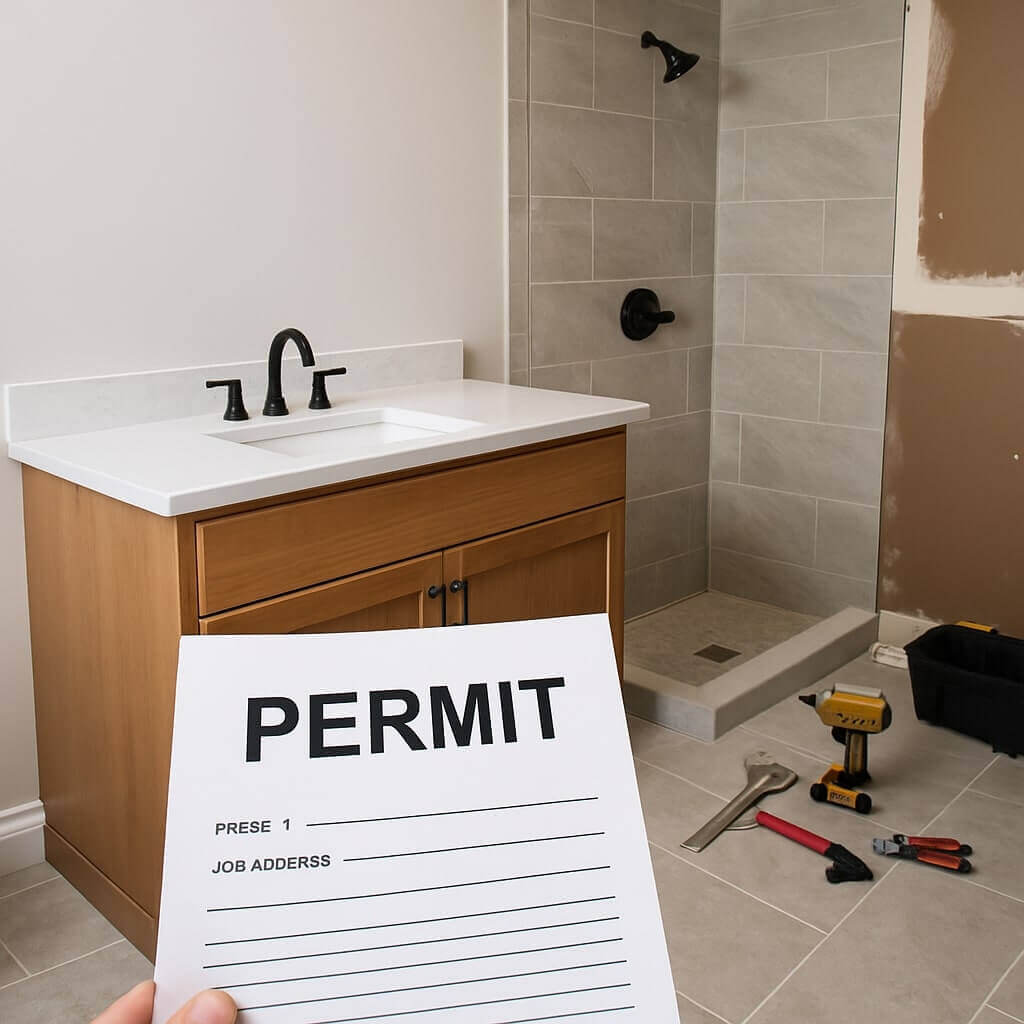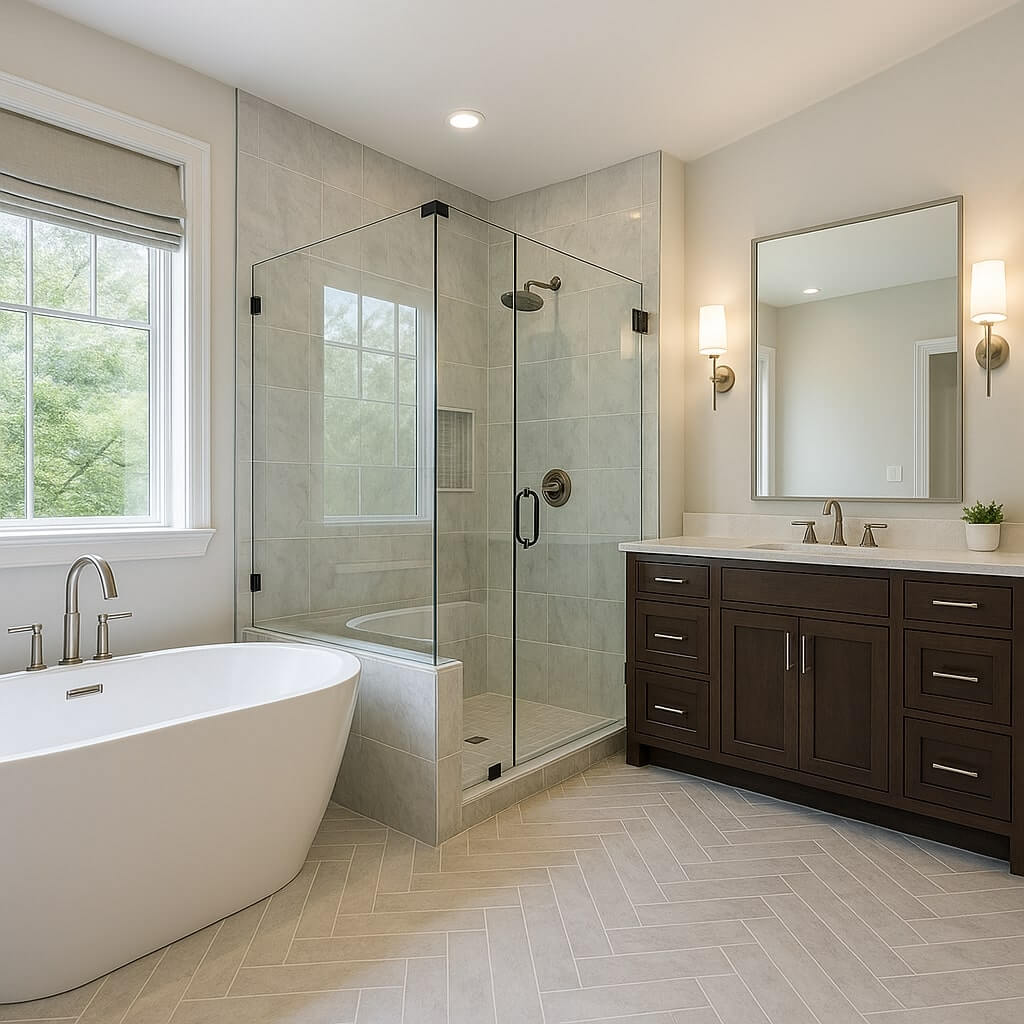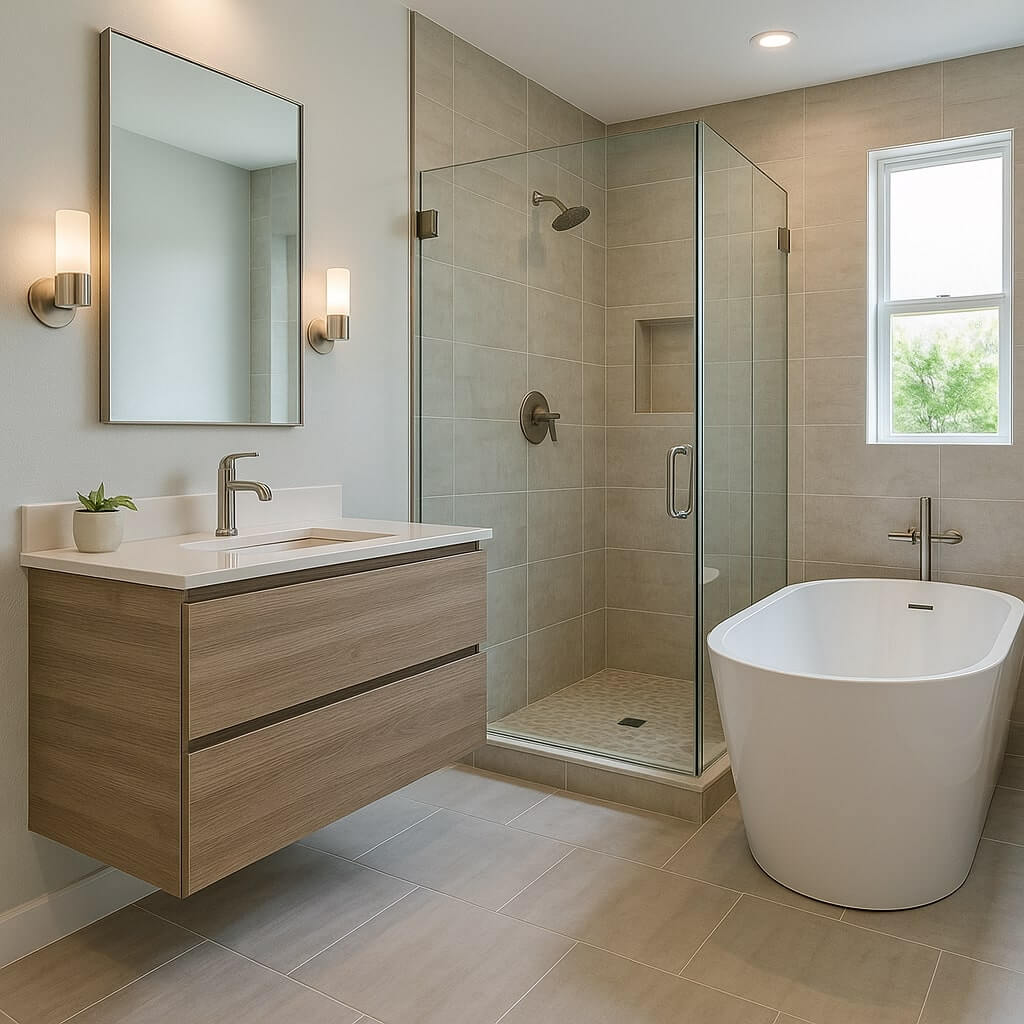Remodeling your bathroom is a great way to enhance your home’s value and comfort. Whether it’s upgrading fixtures, changing the layout, or expanding the space, a bathroom remodel can breathe new life into your home. But many homeowners ask: Does a bathroom remodel require a permit? The answer depends on several factors, including the scope of the project, your local building codes, and the specific modifications being made.
In this guide, we’ll cover everything you need to know about bathroom remodeling permits, including when you need one, how to get it, and the risks of skipping this crucial step.
When Is a Permit Required for a Bathroom Remodel?
A permit is typically required when the work involves structural, plumbing, electrical, or mechanical changes. Here’s a breakdown of when you may need one:
1. Structural Changes
If you’re moving walls, altering the floor plan, or making changes that affect the building’s structural integrity, you’ll need a permit.
2. Plumbing Work
Adding new plumbing lines, rerouting existing ones, or installing new fixtures like a shower or toilet usually requires a plumbing permit.
3. Electrical Upgrades
Installing new outlets, lighting, or upgrading the bathroom’s electrical panel means you’ll likely need an electrical permit, especially to meet safety codes.
4. HVAC or Ventilation Changes
If you’re adding or altering ventilation systems, such as an exhaust fan or ductwork, a mechanical permit might be necessary.
When You Might Not Need a Permit
There are scenarios where a permit is not needed, such as:
- Replacing faucets or showerheads
- Painting walls or installing wallpaper
- Swapping out a toilet without changing plumbing lines
- Updating cabinetry or vanities without electrical/plumbing work
However, even in these cases, it’s best to consult with your local building department to be sure.
Why Permits Matter
Getting a permit isn’t just a formality—it protects you, your home, and future buyers.
1. Ensures Safety and Compliance
Permits require inspections, which ensure the work meets current safety standards and building codes.
2. Prevents Legal Issues
Unauthorized remodels may lead to fines, forced demolition, or complications when selling your home.
3. Protects Property Value
Having documentation of permitted work can increase your home’s market value and provide peace of mind to future buyers.
How to Get a Permit for a Bathroom Remodel
1. Contact Your Local Building Department
Each city or municipality has its own rules. Start by contacting your local building office to understand what’s needed.
2. Submit Your Plans
You may need to submit floor plans or drawings, especially for structural or layout changes.
3. Pay Fees
Permits usually come with a fee based on project size or value.
4. Schedule Inspections
Once work begins, inspectors will visit at various stages to ensure the remodel complies with code.
Consequences of Skipping a Permit
- Fines & Legal Trouble: Unpermitted work can result in penalties or mandatory removal.
- Insurance Issues: If a remodel causes damage, your home insurance may not cover it without permits.
- Resale Challenges: Unpermitted work can delay or block home sales or appraisals.
Tips for a Smooth Permit Process
- Hire a Licensed Contractor: Professionals are familiar with local codes and permit procedures.
- Plan Ahead: Permits take time—factor this into your remodel timeline.
- Keep Records: Save copies of all permits, approvals, and inspection reports.
Frequently Asked Questions (FAQs)
Yes, homeowners can usually apply, but hiring a licensed contractor is often faster and ensures compliance.
Permit costs vary widely by location but can range from $50 to several hundred dollars depending on the scope.
You may face fines, have to undo the work, or encounter issues when selling your home.
Yes, but you may also need approval from your HOA or park management in addition to city permits.
It can take a few days to several weeks depending on your city’s permitting process and the complexity of your project.
Conclusion
So, does a bathroom remodel require a permit? In many cases, yes—especially when plumbing, electrical, or structural changes are involved. While it might seem like a hassle, obtaining the proper permits is essential to ensure the safety, legality, and long-term value of your renovation.
Before starting your next bathroom remodel, take the time to check your local building codes and secure the necessary permits. It’s a small step that can save you big headaches in the future.




